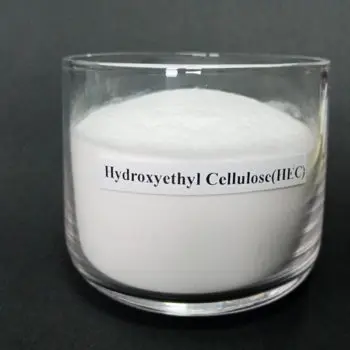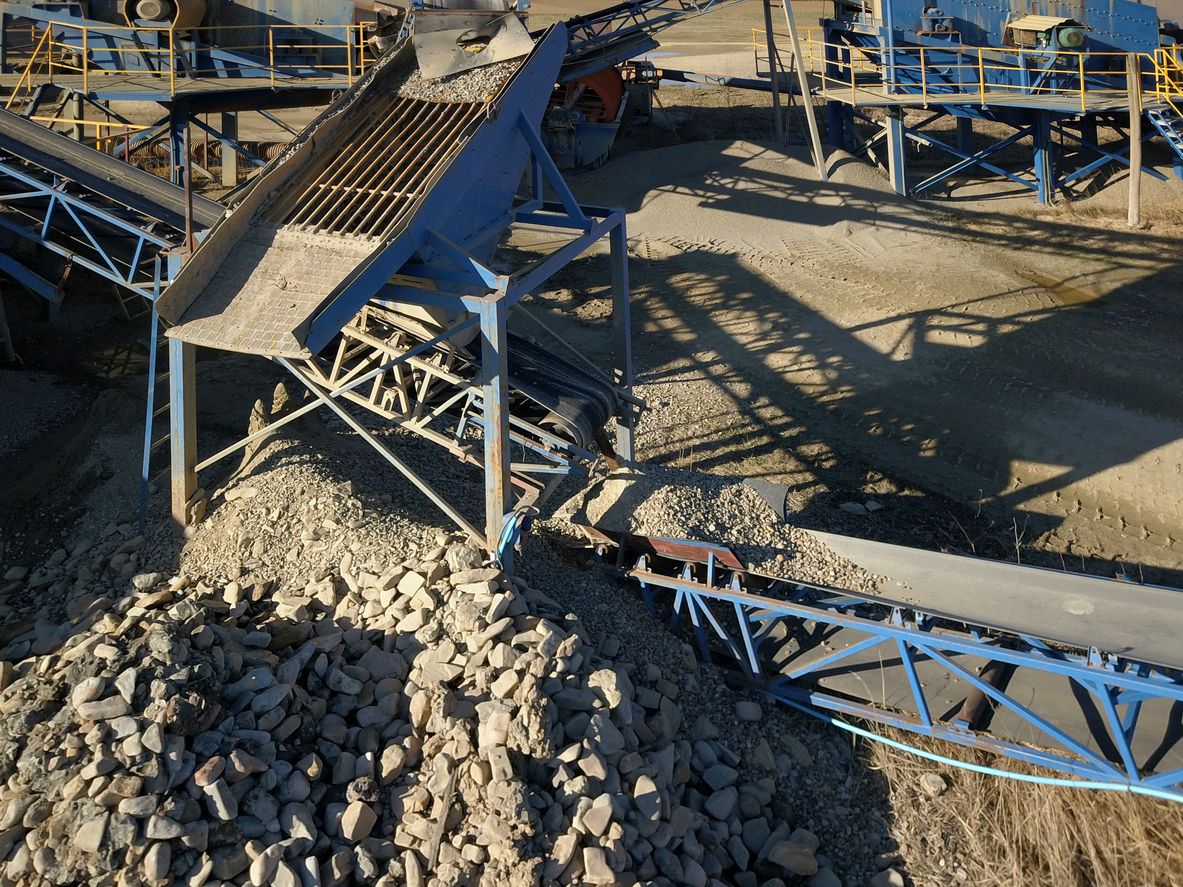Exploring the Benefits of Hydroxy Ethyl Cellulose in Nigeria and Africa
Exploring the Benefits of Hydroxy Ethyl Cellulose in Nigeria and Africa
Are you curious about the wonders of Hydroxy Ethyl Cellulose? Look no further! In this blog post, we will take you on a journey through Nigeria and Africa to explore the incredible benefits of this versatile compound. Whether it’s in construction, cosmetics, or pharmaceuticals, Hydroxy Ethyl Cellulose is revolutionizing industries across the continent. Get ready to be amazed by its unique properties and discover how it is shaping the future of innovation in Nigeria and beyond. Join us as we dive into this exciting world and unlock the endless possibilities that lie within Hydroxy Ethyl Cellulose in Africa!
Introduction to Hydroxy Ethyl Cellulose (HEC)
Introduction to Hydroxy Ethyl Cellulose (HEC)
Hydroxy Ethyl Cellulose, also known as HEC, is a water-soluble polymer that is derived from cellulose. It is widely used in various industries, including pharmaceuticals, cosmetics, food and beverage, paint and coatings, and construction.
In recent years, the demand for HEC has significantly increased in Nigeria and other African countries due to its wide range of beneficial properties and versatile applications. In this section, we will explore the basics of HEC and how it can benefit different industries in Nigeria and Africa.
What is Hydroxy Ethyl Cellulose (HEC)?
As mentioned earlier, HEC is a water-soluble polymer that is derived from cellulose. Cellulose is a natural compound found in plants’ cell walls and serves as their structural component. To create HEC, cellulose undergoes a chemical reaction with ethylene oxide to produce hydroxyethyl groups on the cellulose chain.
The resulting product has excellent water retention capabilities while being soluble in both cold and hot water. This unique combination of properties makes HEC an essential ingredient in many products across various industries.
Applications of Hydroxy Ethyl Cellulose
1. Pharmaceutical Industry
HEC’s thickening properties make it a valuable ingredient in pharmaceutical formulations such as tablets, ointments, creams, gels, suspensions, and emulsions. It helps improve the stability of these formulations by preventing separation and settling. HEC is also used as a binder, disintegrant, and coating agent in tablet formulations.
2. Cosmetics Industry
In the cosmetics industry, HEC is widely used as a thickener, stabilizer, and emulsifier in various products such as shampoos, body washes, lotions, creams, and makeup. It helps create a smooth and creamy texture while improving product stability.
3. Food and Beverage Industry
HEC is commonly used as a thickening agent in food and beverage products such as sauces, dressings, soups, and beverages. It can also act as a suspending agent to prevent solid particles from settling at the bottom of the product.
4. Paint and Coatings Industry
In the paint and coatings industry, HEC is used as a thickener to control viscosity and improve the rheological properties of the product. It also acts as a protective colloid to prevent coalescence of pigment particles.
5. Construction Industry
HEC’s water retention capabilities make it an essential ingredient in construction materials such as tile adhesives, mortar, grouts, joint fillers, and cement-based plasters. It helps improve workability and prevents premature drying of these materials.
What is HEC and how is it produced?
HEC, short for Hydroxy Ethyl Cellulose, is a water-soluble polymer that has become increasingly popular in various industries due to its unique properties and wide range of applications. It is produced from cellulose, which is the main structural component of plant cell walls, through a chemical modification process.
The production of HEC begins with the extraction of cellulose from wood pulp or other natural sources such as cotton or jute. The extracted cellulose fibers are then treated with alkali and acid solutions to remove impurities and increase their reactivity. This process also results in the formation of carboxymethyl cellulose (CMC) as a byproduct.
Next, the purified cellulose is reacted with ethylene oxide under controlled conditions to introduce hydroxyethyl groups onto the cellulose backbone. This reaction can be carried out either by using an alkaline medium (alkaline route) or an acidic medium (acidic route). The choice of reaction conditions determines the molecular weight and degree of substitution (DS) of HEC produced.
After the reaction is complete, the product is neutralized, washed, and dried to obtain a fine powder form of HEC. This versatile polymer can be further processed into different grades based on its molecular weight and DS to suit specific application requirements.
One of the key advantages of producing HEC from renewable resources like wood pulp is its eco-friendliness compared to synthetic polymers derived from petrochemicals.
Uses and Applications of HEC in Nigeria and Africa
HEC (Hydroxy Ethyl Cellulose) is a widely used and versatile chemical compound that has a variety of applications in various industries. In this section, we will delve into the specific uses and applications of HEC in Nigeria and Africa.
1. Construction Industry:
One of the primary uses of HEC in Nigeria and Africa is in the construction industry. It is commonly used as an additive in cement-based products such as mortar, grout, and tile adhesives. HEC acts as a thickening agent, improving the workability and consistency of these products. It also enhances their water retention capacity, making them less prone to cracking or shrinking. Additionally, HEC helps to reduce segregation and bleeding during the application process, resulting in a more durable final product.
2. Paints and Coatings:
HEC is an essential ingredient in many paints and coatings formulations due to its excellent thickening properties. It provides stability to paints by preventing settling or sagging during storage or application. Moreover, it improves the flow behavior of paint, allowing for better coverage on different surfaces.
3. Personal Care Products:
Many personal care products such as shampoos, conditioners, lotions, creams contain HEC as an ingredient due to its ability to form a protective film on skin or hair strands. This film helps retain moisture, leaving skin feeling soft and smooth while reducing frizz and static electricity from hair.
Benefits of HEC in various industries (pharmaceutical, cosmetics, construction, etc.)
Hydroxy Ethyl Cellulose (HEC) is a versatile compound that has various benefits in different industries. From pharmaceuticals to cosmetics and even construction, HEC plays a significant role in enhancing the quality and effectiveness of products. Let’s take a closer look at how HEC benefits these specific industries in Nigeria and Africa.
1. Pharmaceutical Industry:
HEC has been widely used in the pharmaceutical industry for its ability to act as a thickening agent and improve the viscosity of medications. This makes it easier to swallow pills or tablets, especially for patients who have difficulty swallowing large medication forms. HEC also acts as a binder, ensuring that all active ingredients are evenly distributed within the medication, increasing its efficacy. Furthermore, HEC can also act as a sustained-release agent, controlling the rate at which the drug is released into the body over time.
2. Cosmetics Industry:
In the world of cosmetics, HEC plays an essential role as an emulsifier and stabilizer in lotions, creams, and other skincare products. It helps maintain consistency and prevents ingredients from separating while providing excellent moisture retention properties for hydrated skin. Additionally, HEC acts as a protective film-forming agent on hair strands in shampoos and conditioners, keeping them smooth and shiny.
3. Construction Industry:
HEC has gained widespread recognition in the construction industry due to its strong adhesive properties when mixed with cement or gypsum-based materials.
How Wigmore Trading is contributing to the supply of HEC in Nigeria and Africa
Wigmore Trading, a leading chemical distributor in Nigeria and Africa, is playing a significant role in the supply of Hydroxy Ethyl Cellulose (HEC) to various industries. With over 20 years of experience in the chemical industry, Wigmore Trading has established itself as a reliable source for high-quality chemicals, including HEC.
But what exactly is HEC and how is Wigmore Trading contributing to its supply in Nigeria and Africa?
HEC is a water-soluble polymer that is derived from cellulose, a natural substance found in plants. It has excellent thickening properties and is widely used as a stabilizer, binder, emulsifier, and film-forming agent in various industries such as construction, pharmaceuticals, personal care products, food production, and many more.
One of the main ways Wigmore Trading contributes to the supply of HEC in Nigeria and Africa is by sourcing it directly from manufacturers who adhere to strict quality control standards. This ensures that the HEC supplied by Wigmore Trading meets international quality standards and is safe for use in various applications.
Additionally, Wigmore Trading has established strong partnerships with local suppliers across Africa to ensure timely delivery of HEC to customers. Through these partnerships, Wigmore Trading can meet the increasing demand for HEC while also supporting local businesses.
Furthermore, Wigmore Trading offers technical support services to its customers regarding the proper usage and application of HEC.
Case studies/examples of successful use of HEC in Nigeria and Africa
In recent years, the use of Hydroxy Ethyl Cellulose (HEC) has gained traction in Nigeria and across Africa. This versatile chemical compound has proven to be an effective additive in a wide range of industries, from construction to personal care products. In this section, we will explore some real-life examples of successful use of HEC in various applications across the continent.
1. Building and Construction Industry:
The building and construction industry is one of the largest users of HEC in Nigeria and Africa. One notable case study is the Dangote Cement plant located in Ibese, Ogun State, Nigeria. The company used HEC as a thickening agent in their cement production process, resulting in improved workability and consistency of their cement paste. This ultimately led to increased efficiency and reduced cement waste during construction projects.
2. Cosmetic Industry:
HEC has also found its way into the cosmetic industry in Africa with great success. Nigerian brand “House of Tara” uses HEC as a binding agent for their eyeshadows and blushes, providing long-lasting color payoff without irritating the skin. Similarly, South African beauty brand “Sorbet” utilizes HEC as an emulsifier in their body lotions and creams, giving them a smooth texture that is easily absorbed by the skin.
Challenges and limitations of using HEC in Nigeria
Challenges and Limitations of Using HEC in Nigeria:
While the benefits of Hydroxy Ethyl Cellulose (HEC) are numerous, there are some challenges and limitations that need to be addressed when using this compound in Nigeria. These challenges stem from various factors such as production, accessibility, and cultural barriers.
1. Production Challenges:
HEC is mainly produced by developed countries and imported into Nigeria, which leads to high costs for local manufacturers. This makes it difficult for small-scale industries or startups to afford HEC, hindering its widespread use in the country.
Moreover, the lack of proper infrastructure and technology for large-scale production of HEC also poses a challenge for local manufacturers. This results in a heavy reliance on imports, making it difficult to meet the increasing demand for HEC in various industries.
2. Accessibility Issues:
Accessibility is another major challenge facing the use of HEC in Nigeria. Due to its limited availability and high cost, many smaller businesses cannot access this compound. This means they have to settle for alternative solutions that may not provide the same level of efficiency as HEC.
Furthermore, the distribution channels for HEC are limited, with most suppliers located only in major cities like Lagos or Abuja. This creates logistical challenges for businesses operating outside these areas who may struggle to get their hands on this vital compound.








Comments are closed.